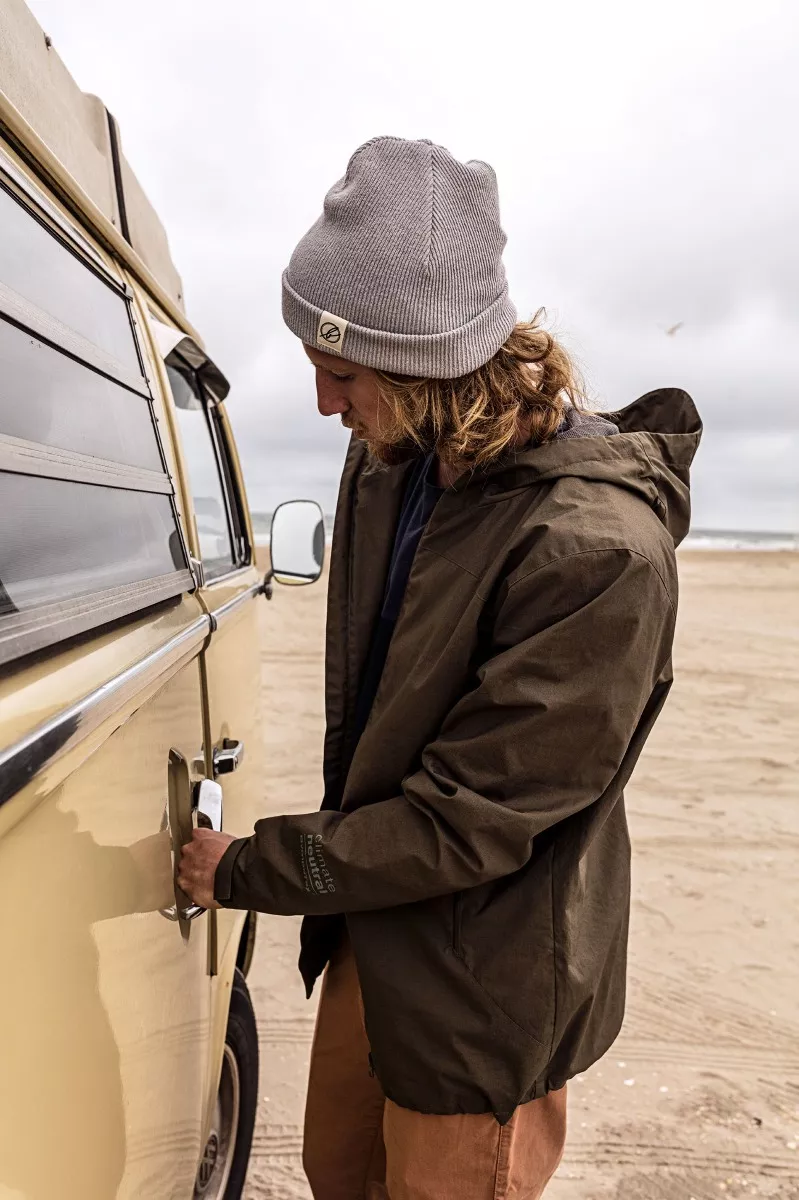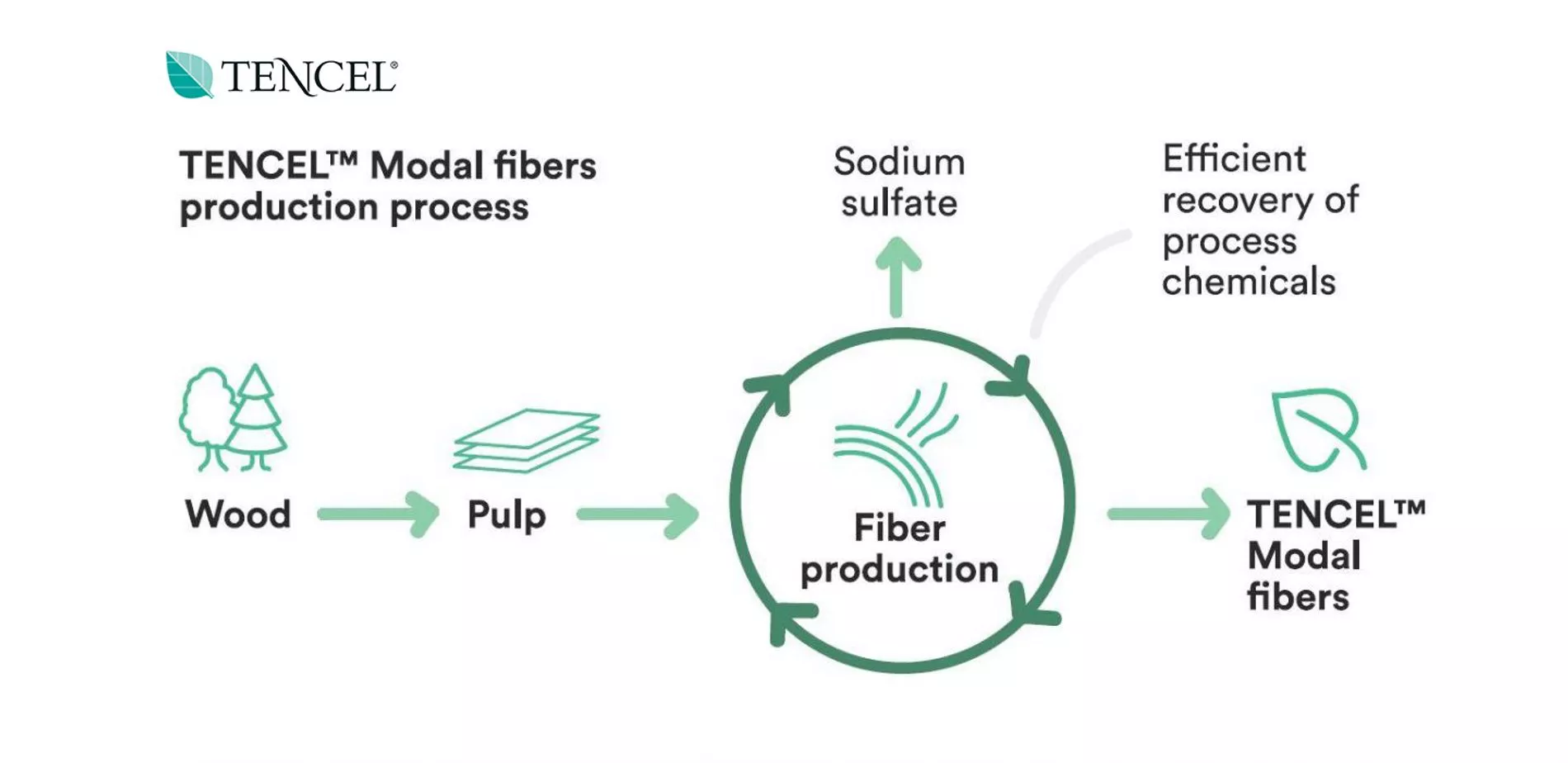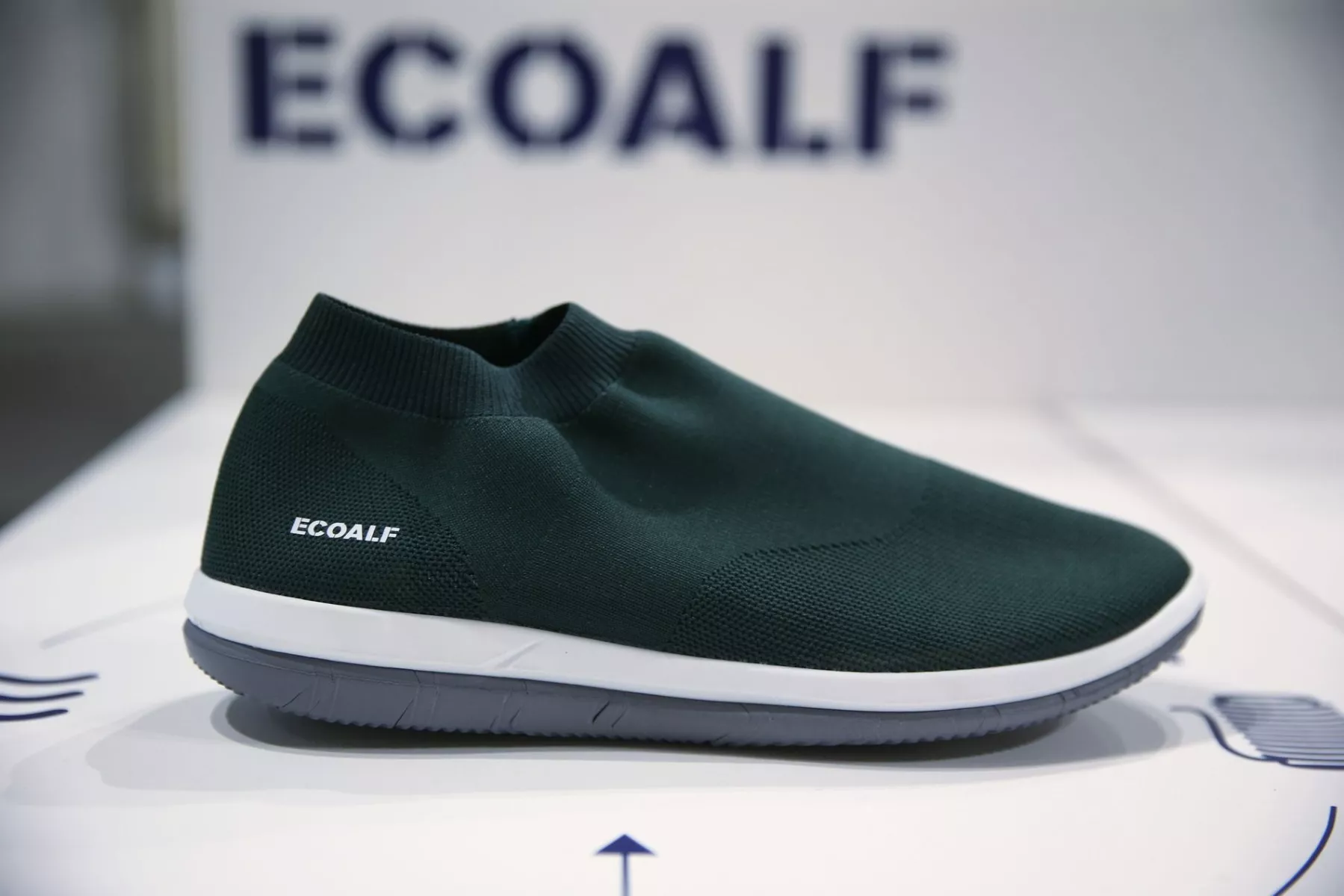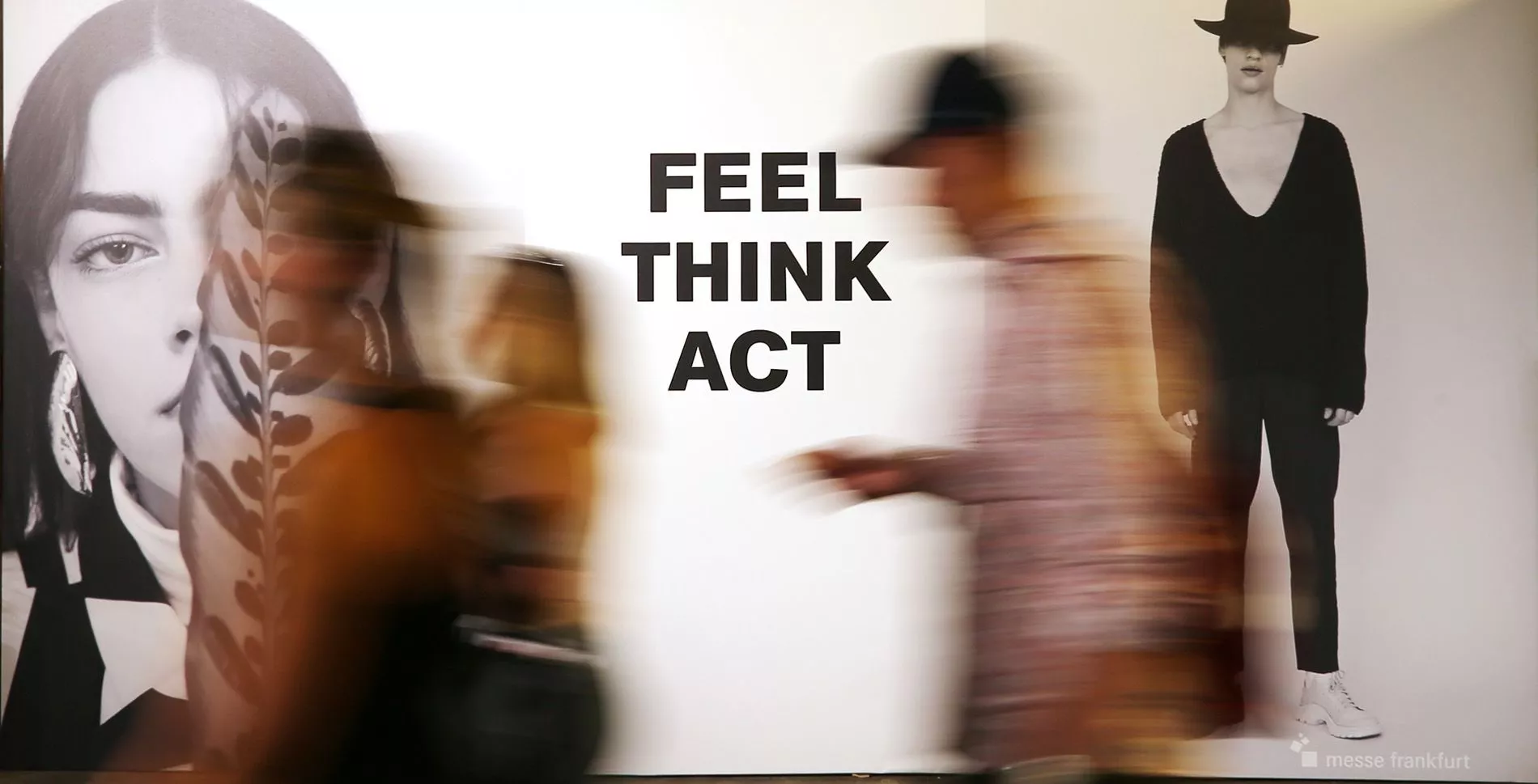Get 10% off and be the first
to discover new brands!
Click here to view the ‘Ethical Fashion Show Berlin - Part 1’ article
Day two’s conference at Ethical Fashion Show Berlin is led by Fashion Sustain Berlin, part of the Messe Frankfurt group. The first talk asks the question, why exploit when you can explore?
Fashion At a Crossroads
‘There is a tipping point on the horizon,’ claims Alexandra Cousteau of the Good Impact Family, who specialise in the dissemination of positive journalism to catalyse social and environmental change.
‘Fashion is at a crossroads of cooperation and innovation,’ Alexandra continues. Recent studies have found that 25% of fish caught off the Californian coast are contaminated with microfibres and 99% of the cotton produced worldwide is known to be grown with chemicals that cause eutrophication.
The world cannot survive without collaborative efforts to tackle such environmental threats. A shift in individual consciousness is needed, Alexandra claims, before manifesting her intentions in a clear philosophical statement. ‘The things I believe in are aligned with my actions and I will pass on a better world to my children.’
It sounds like a rehash of Gandhi's famous quote 'be the change that you wish to see in the world´. The statement provokes me to question my own actions. What are my beliefs? What things do I do that are not aligned with those beliefs? How can I change them? Individuals taking ownership for their actions and challenging their attitudes and behaviour are vital steps towards a more eco-conscious planet.
Continuing along the same lines, Ellen Karp of Anerca, a market research and consumer strategy agency, presents the findings of a global public awareness survey commissioned by Oeko-Tex, a worldwide independent fabric production testing and certification system. The survey sought to establish the global community’s perception of the textile industry and its impacts.
A total of 11,000 people across six continents completed the 25 minute survey and the results showed, rather predictably, huge disparities between what people do and don’t know. In China, for instance, they are far more aware of the environmental impact of the textile industry than in the West. However, from the total number of respondents globally only 22% thought textiles was one of the most polluting industries in the developed world. This might explain why 80 - 90% of those surveyed were aware of eco-friendly clothing, while only 32% actively purchased any.
Overwhelmingly, the survey shows how great the gap is between public awareness and the real environmental impact of the textile industry. ’People don’t talk about problems they don’t know exist,’ Ellen points out, before concluding that, ‘rating agencies, such as Oeko-Tex, are the shortcuts to trust.’ The message is clear. The public needs access to independent, third party assessments in order to make informed choices that reduce harm to our planet.
Urban Brands X Natural Materials
I take a break from the conference to explore some of the other brands dotted around Kraftwerk Berlin’s industrial labyrinth. Urban brand, Bleed, who appropriately caught my attention with a delicious crimson french wine, started out as a skater brand but now design and manufacture urban outwear. They specialise in the use of recycled and organic materials, offering stylish multi-purpose snow jackets that contain 0% polyester, which does not biodegrade under natural conditions, as well as hoodies and other essential garments.

Rather than focusing on the exclusion of certain materials, Bohempia focus their attention on a specific fabric. No prizes for guessing it’s hemp that the alternative brand’s casual footwear and clothing designs are centered around. According to the sales manager Thomas, the 100% organic material boasts improved moisture management versus cotton, natural antibacterial properties and superb durability.
Some of Bohempia’s products, such as t-shirts are blended with organic cotton to provide a softer feel. The entire range is PETA approved vegan and everything is manufactured in Europe. As are the ‘German engineered high-end sneakers’ designed by Nat-2. All of their futuristic looking trainers are handmade in Italy using unlikely materials such as wood, slate and fungus. I Was A Bottle is another brand innovating the use of materials with their range of bags and carry items manufactured entirely from recycled plastic bottles.
Sustainable Cellulose Fabrics Show The Way
Next up, the conference explores Material Innovation with Peter Bartsch of Lenzing, a high quality cellulose fibre innovator. He begins by explaining the circular production process behind Tencel, which relies on CO₂ and light, both of which are highly abundant, completely renewable and can be converted via photosynthesis into beech wood, the raw material needed to produce the fibres. All of the Beech trees used in the production process are taken from FSC certified sustainable forests in Austria and neighbouring countries before being converted into pulp and then spun into incredibly high-performance fibres.
In the laboratory, Tencel fibres exhibit 50% better moisture management than cotton and have proven to be naturally antibacterial. Lenzing’s extensive fibre catalogue also includes Viscose, Lenzing FR and Refibra, Peter explains, with each material developed to be completely biodegradable, even in marine conditions, making them some of the most eco-friendly fabrics around. However, such amazing material innovation would not be successfully implementable without strong partnerships with government, retailers and customers. It’s these enduring relationships that contribute towards systemic change within the textile industry, Peter concludes.


Plastic Fantastic Ocean Trawling
In addition to preventing pollution, it’s crucial that we pay attention to what is already out there. Javier Goyeneche from Ecoalf, a high quality fashion label that uses recycled materials, illustrates this point perfectly with the inspiring story of where they source much of their recycled materials from. The brand partners with over 400 fishing vessels from Spain, each one trawling the oceans, not for fish, but for plastic waste that litters our oceans and is responsible for massive scale marine habitat destruction.
The project, which collects over 200 tonnes of plastic annually, not only benefits the environment but the fishermen too, providing them with extra income in exchange for recovered materials as well as their expired nets. The high cost of safely offloading old nets at port means that they are often subject to illegal dumping at sea, further adding to the suffocating blanket of debris that covers the sea floor. Click here to discover more organisations doing great things to clean up our oceans.
There is also the hugely beneficial educational aspect of Ecolaf’s work, which helps the fishermen and coastal communities to understand and work to protect the environment that they depend on. Ecolaf’s incredible concept goes a long way towards protecting the broad range of life that the oceans support, while at the same time using 50% less CO2, 20% less water and 40% less energy in the production process of finished articles, such as trainers and jackets. Still, it’s only the start. There are plans to expand the operation to Thailand and beyond.


The Path Towards Fashion Transparency
At the end of the conference, it’s clear there are lots of amazing innovations leading down the path of fashion transparency and ethics. However, a huge shift in consumer consciousness is still needed before meaningful change can be affected. Even the Ethical Fashion Show, which spearheads the eco-fashion movement, has much to learn before it is completely in scope of its values.
Overall, by the end of the conference, I am filled with a sense of optimism, convinced that through research, knowledge sharing and collaboration the fashion industry can achieve transparency. With transparency comes the trust of consumers. With that trust comes a new wave of eco-friendly and ethical brands, providing alternatives to fast fashion and its unsustainable consequences. If you are looking for ways to consume clothing more ethically, check out our guide to making the switch to slow fashion.
If you have any suggestions, questions or want to offer some in-kind assistance that could help grow the the project, or if you are interested in partnering or collaborating with The Fair Cottage, we would be delighted to hear from you.
You can also join our conscious network and contribute towards change by signing up to our mailing list.



